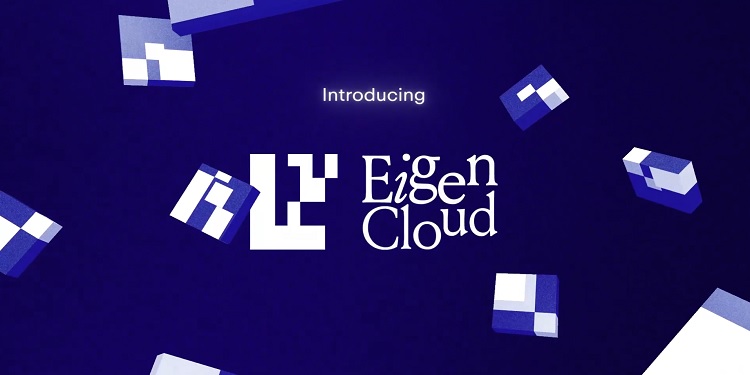EigenLayer has taken a significant step forward in overcoming one of the long-standing limitations of blockchain technology by launching EigenCloud, a new platform designed to extend blockchain-grade trust and verification capabilities to applications operating beyond the blockchain environment. This development is backed by an additional $70 million investment from venture capital firm Andreessen Horowitz (a16z), marking a pivotal moment in the evolution of blockchain infrastructure.
The company behind the Ethereum restaking protocol stated that EigenCloud seeks to address the historical issue that blockchain applications have been constrained to verifying only on-chain data. Off-chain computations, real-world data, and AI-based processes have traditionally remained outside the scope of blockchain validation, operating in an environment where trust could not be cryptographically ensured.
According to Eigen Labs, the creators of EigenLayer, this new platform aims to make verifiability accessible to any developer, regardless of blockchain expertise. Through mechanisms like programmable slashing, flexible operator frameworks, and various settlement options, developers can now enforce correctness in applications that rely on external data or processing.
The firm described EigenCloud as a unified infrastructure offering cryptographic guarantees for both on-chain and off-chain activities. With over $12 billion in total value locked since its mainnet launch two years ago, EigenLayer has emerged as Ethereum’s leading restaking protocol. The latest funding round by a16z Crypto Fund IV follows a previous $100 million Series B round, further strengthening the protocol’s development capacity.
Modular Architecture for Trusted Computation
At the core of EigenCloud are three modular components: EigenVerify for resolving disputes, EigenDA for ensuring data availability, and EigenCompute for executing tasks. These modules empower developers to build decentralized applications that interact with off-chain systems while retaining blockchain-level security and trust guarantees.
The platform is powered by a network of Autonomous Verifiable Services (AVSs)—independent, decentralized modules secured by Ethereum assets restaked via EigenLayer. Over 200 AVSs are currently live or under development, performing roles such as oracle services, bridges, middleware, and data validation.
The evolution is here. The age of verifiable apps has begun.
Introducing EigenCloud, a platform for verifiable apps, services, and AI, built on EigenLayer, secured by the EIGEN token. ☁️
Crypto has spent a decade building trustless infrastructure.
Now it’s time to build on it. pic.twitter.com/AjXO6lOoMd
— EigenCloud (@eigenlayer) June 17, 2025
AVSs benefit from the shared security of EigenLayer’s restaking model, which has around $12 billion in staked assets. These assets are responsible for safeguarding approximately $2 billion in application value, reinforcing the platform’s systemic robustness.
Enterprise Adoption and Risk Management
Financial institutions have already begun to explore the potential of EigenCloud. Securitize, a digital asset services firm, plans to utilize the platform to validate pricing data for BlackRock’s $2 billion BUIDL tokenized fund. This marks one of the first enterprise-grade implementations of EigenLayer’s new infrastructure.
While slashing—an enforcement mechanism that penalizes dishonest or incorrect behavior by operators—is central to AVS operations, Eigen Labs emphasized that such penalties are designed to be isolated. Each AVS handles its own slashing conditions independently, ensuring that issues within one module do not cascade across the network or compromise Ethereum’s base layer.
The company also highlighted its focus on systemic resilience. It stated that this compartmentalization of risks helps maintain trust and stability across the ecosystem, even when individual AVSs face operational faults.
Opening New Possibilities for Blockchain Utility
EigenLayer’s long-term vision includes transforming verifiability into a programmable economic function that supports high-trust use cases across sectors like artificial intelligence, healthcare, financial services, and traditional web infrastructure. The platform is designed to help developers build decentralized applications that rely on complex off-chain computation without compromising on trust.
An alpha version of the platform became available this week, featuring performance improvements to EigenDA and limited access to EigenVerify. Broader access is anticipated later in the year, alongside new dispute resolution mechanisms and automated infrastructure tools.
By expanding the boundaries of what blockchains can verify, EigenLayer is positioning itself as a key enabler of the next wave of decentralized applications.



